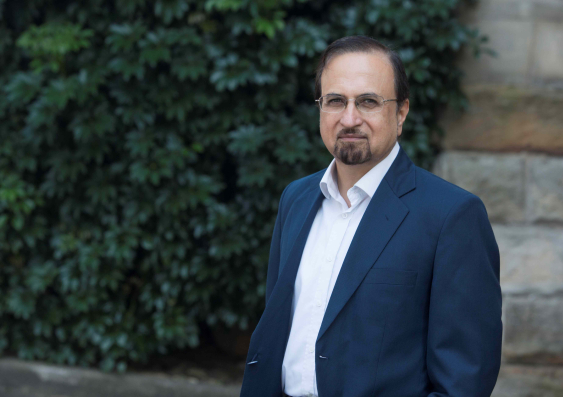Funding success to develop the epidemiology of dementia
The funding will have a major impact on the study,Ěýtreatment and management of dementia in Australia and internationally.
The funding will have a major impact on the study,Ěýtreatment and management of dementia in Australia and internationally.

The Cohort Studies of Memory in an International Consortium (COSMIC), led by UNSW’s (CHeBA), has been awarded $US7.3 millionĚýover five years from the in the United States.
CHeBA is a global leader in developing the epidemiology of dementia, dealing with the global inequity in such research, and expediting outcomes for dementia on the international stage. Dementia has been referred to as the next pandemic that has already begun, with 50 million families affected worldwide and a cost to the global economy of $1.3 trillion in 2020.
Co-Director of CHeBA, Professor Perminder Sachdev, said “CHeBA is perfectly positioned to achieve major goals set by the World Health Assembly’s Global Action Plan on the public health response to dementia, including evidence-based practice for dementia risk reduction, early and appropriate diagnosis, and global equity in research.
“This funding will allow us to harness the power of our unique consortium, to map globally the 12 modifiable risk factors of dementia identified by the 2020 Lancet Commission, document the diverse epidemiology of dementia internationally, and to better understand ethnic differences in the genetics and biomarkers for dementia,” said Prof. Sachdev.
“CHeBA is advancing the outcomes for dementia on an international stage and this funding will have a significant impact on the study and treatment of this disease in Australia and globally,” Acting Dean of UNSW Medicine & HealthĚýProfessor Martin Gallagher said.
Announced by the U.S. National Institute on Aging, the grant will allow the expansion of CHeBA’s international research collaboration within COSMIC, to study novel risk and resilience factors such as the built and economic environments, air pollution, sleep, nutrition, social health – including social activity and network size, quality of social engagement and loneliness and frailty.Ěý
Over a five-year period, the incidence of mild cognitive impairment and dementia will be documented in diverse regions and risk models for dementia in specific populations will beĚýdeveloped. The team will also map the risk and protective factors for dementia and estimate their burden around the world, with an emphasis on under-represented populations so that population-specific risk indices for dementia can be developed to aid the global campaign to prevent dementia.Ěý
The collaborative team on this grant includes the Davos Alzheimer’s Collaborative (DAC), Dementias Platform UK (DPUK), Alzheimer’s Disease Data Initiative (ADDI), Global Brain Health Institute (GBHI) and Institute of Health Metrics and Evaluation (IHME).Ěý
The grant funding will also support the examination of cerebrovascular disease and vascular risk factors by harmonising neuroimaging biomarkers, and study genetic markers in non-European populations, as well as investigate the potential of plasma biomarkers for Alzheimer’s disease in diverse populations. It will also support further development of the Dementias Platform Australia in partnership with the DPUK.
COSMIC currently has 54 member studies from 39 nations, including 35 studies from low- and middle-income countries. With its global reach, open sharing of data and diverse network of researchers, COSMIC is creating a global epidemiology of dementia that is needed to meet the ambitious goals of the World Health Assembly.Ěý
Prof. Sachdev said the funding “would allow a lasting impact on the epidemiology of cognitive ageing and dementia”.Ěý
More information about CHeBA is available on its .Ěý